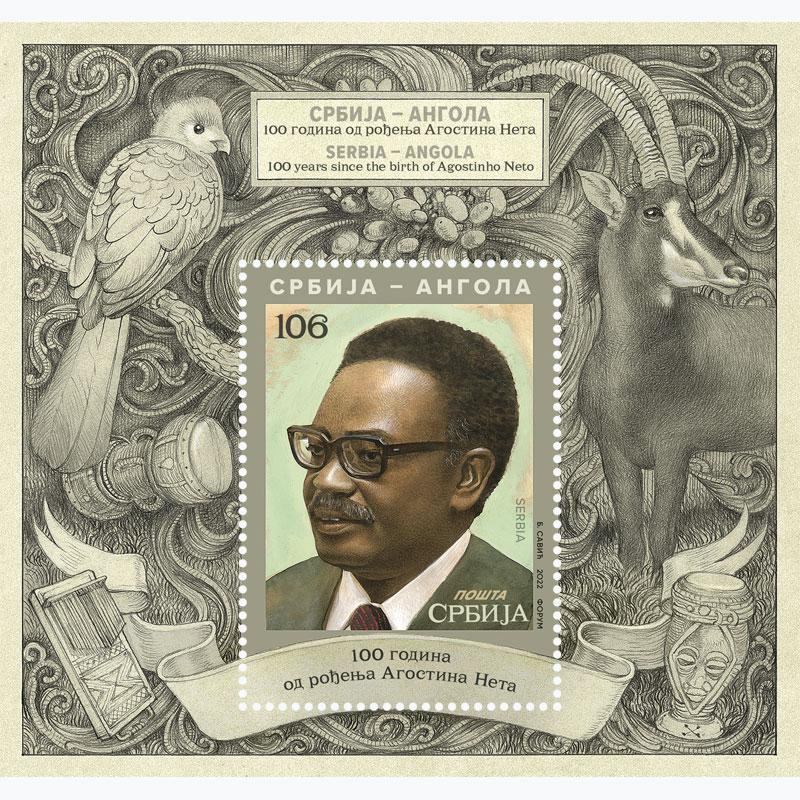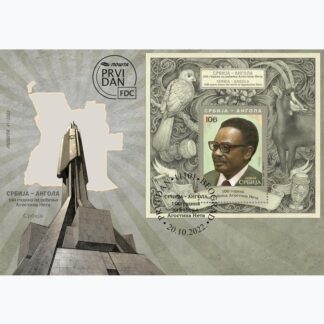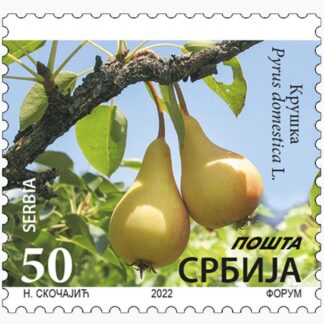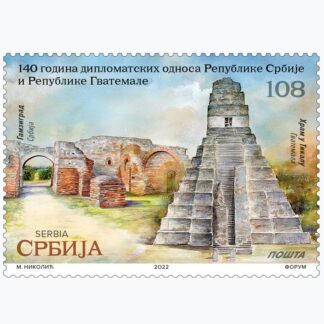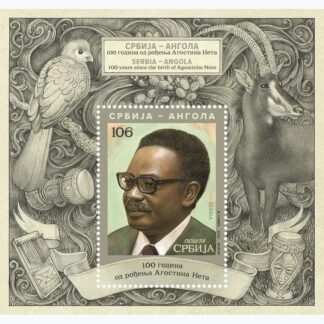Description
Antonio Agostinho Neto (port. António Agostinho Neto; Katete, 17 September, 1922 – Moscow, 10 September, 1979), poet and national leader, founder of the left-hand People’s Movement for the Liberation of Angola in 1953 and one of the leaders of the struggle for Angola’s independence, was the first president of the independent Angola (1975–1979).
He studied medicine in Lisbon, and in the 1940s became an important element in the movement that sought to return to traditional Angolan culture. Upon his return to Angola, he was arrested for his opposition to colonialism, so he fled to Morocco and became the leader of the Angolan resistance movement in exile.
Agostinho Neto was arrested in 1960 and taken to Cape Verde and later to Lisbon. After some time, due to great public pressure, he was released under house arrest, but managed to escape to Morocco, and from there to Zaire.
After the overthrow of the dictatorship in Portugal in 1974, the independence movement strengthened in Angola, and on 11 November, 1975, after 56 years of struggle, Angola was officially declared independent, and Agostinho Neto became its first president. His government established close ties with socialist countries. Angola established particularly good relations with our country, and the close friendship between Angola and Serbia, which continues to this day, began in this period.
Neto died on 10 September, 1979, during chirurgical intervention in Moscow, while civil war was raging in his homeland. Today, the day of his birth is celebrated in Angola as a holiday, the Day of National Heroes, and the University of Luanda bears his name.
Expert collaboration: Embassy of the Republic of Angola to Serbia
Artistic realization of the issue: Boban Savić MA, academic painter
